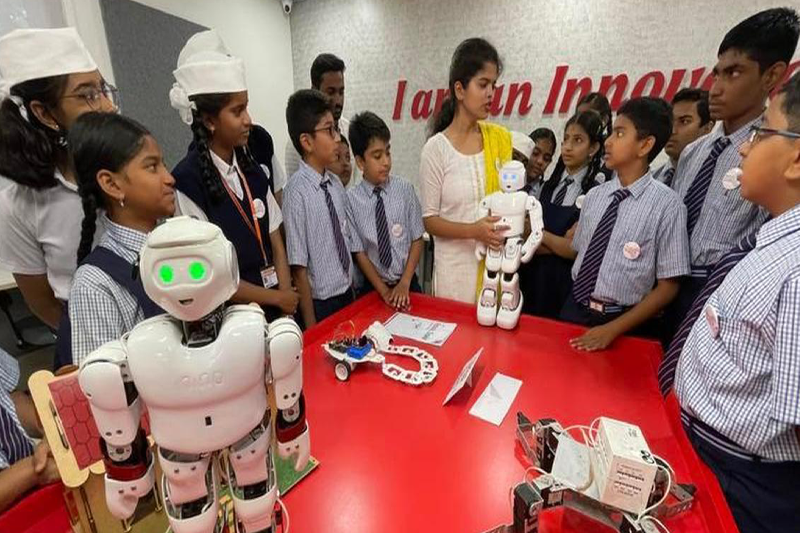
IBPS Introduces Zero-Tolerance Framework to Combat Cheating in Banking Recruitment Exams
The Institute of Banking Personnel Selection (IBPS) has announced a strengthened zero-tolerance policy to curb cheating, impersonation, and organised malpractice in banking recruitment examinations. With lakhs of aspirants appearing annually for IBPS exams, the organisation has reaffirmed that exam integrity and merit-based selection remain its highest priorities.
As concerns grow about sophisticated cheating rackets and proxy networks exploiting competitive exams across the country, IBPS has released an updated notification outlining advanced analytical tools, multi-layered monitoring systems, and stringent penalties to ensure fairness and transparency in the recruitment process.
IBPS Reinforces Its Stand: No Compromise on Exam Integrity
In its directive, IBPS emphasized that every candidate must attempt the examination independently, without relying on external help or any coordinated malpractice. To enforce this, the organisation has enhanced its overall examination scrutiny mechanisms, incorporating post-exam analytical tools, biometric verification, behavioural analysis, and cross-referencing of past data.
The notification highlights that cheating and impersonation attempts have become increasingly organized, prompting IBPS to adopt globally benchmarked surveillance and analytical systems. The updates aim to reassure aspirants that genuine performance will be protected and fraudulent behaviour will be detected and penalised immediately.
Advanced Post-Exam Analysis: A Multi-Layered Defence System
One of the key elements of IBPS’s new framework is its post-exam analytical system, which conducts deep, data-driven scrutiny of all answer patterns. These analytical tools are designed to identify irregularities even when traditional invigilation may not detect them.
Key analytical measures include:
1. Comparative Answer-Pattern Analysis
IBPS now implements detailed comparisons of answer sheets across candidates. This method evaluates:
- Similarities in correct answers
- Similarities in incorrect answers
- Sequence patterns that are statistically improbable
Such analysis is particularly effective in detecting organized copying or collusion, especially in large exam centres.
2. High-Similarity Checks on Wrong Answers
International testing bodies widely consider this one of the strongest indicators of cheating. When two or more candidates have:
- A high match rate of wrong answers
- Wrong answers selected in the same sequence
- Unusual response patterns
…it signals potential copying or coordinated malpractice.
3. Deep Analysis of Descriptive Responses
IBPS applies linguistic and contextual scrutiny to descriptive answers to detect:
- Identical phrases or blocks of text
- Filler paragraphs inserted to bypass plagiarism checks
- Manipulated submissions written under guidance or through unauthorized assistance
4. Biometric and Personal Data Verification
To counter impersonation and proxy candidates, IBPS cross-verifies:
- Biometric data captured during exams
- Historical biometric entries
- Patterns in answering speed and behaviour
- Past application data and performance trends
This helps detect candidates who attempt to circumvent the system using proxies or falsified identities.
5. Invigilator and Test-Centre Reports
Post-exam reports submitted by invigilators undergo thorough examination. These reports document:
- Suspicious conduct
- Unusual candidate interactions
- Any form of restricted behaviour
- Reports from CCTV surveillance at test centres
Together, these layers form a comprehensive defence system that flags any deviations from normal examination behaviour.
Committee for Detection of Unfair Means: Rigorous Review of Flagged Cases
All irregularities detected through analytical or behavioural checks are escalated to the Committee for Detection of Unfair Means. This committee conducts a multi-parameter evaluation, taking into account:
- Statistical evidence
- Behavioural patterns
- Invigilator observations
- Data from biometric checks
- Answer similarity diagnostics
Based on the committee’s findings, IBPS has the authority to:
- Cancel candidature
- Withhold results
- Retract already declared results
- Bar candidates from future examinations
Importantly, these actions can be taken at any stage, even after results are announced or when recruitment formalities have progressed.
Legal Backing and Continued Candidate Awareness
IBPS reiterated that candidates are consistently warned about these checks through:
- Admit cards
- Information handbooks
- Exam guidelines
Candidates are explicitly informed that post-exam similarity analysis is a standard procedure, and therefore, attempts to cheat are likely to be caught regardless of initial invigilation.
Indian courts have repeatedly upheld such preventive measures, confirming that examination bodies have full rights to implement strict monitoring systems to protect the credibility of competitive exams. Global testing institutions also use similar mechanisms, reinforcing that IBPS’s upgraded framework aligns with international best practices.
Addressing the Rising Threat of Proxy Candidates and Cheating Rackets
In recent years, competitive examinations across India have come under pressure due to the emergence of high-tech cheating methods and organised crime groups targeting high-stakes recruitment tests. From proxy candidates using forged biometric identities to coordinated groups sharing answers through digital tools, exam malpractice has grown more sophisticated.
IBPS’s revised policies directly address these risks through:
- Stricter biometric protocols during entry and verification
- Advanced behavioural analysis to track unusual answering patterns
- Heightened surveillance of test centres
- Real-time and post-exam data comparison
The goal is to eliminate even the smallest window for malpractice while safeguarding genuine aspirants.
Strengthening Trust in Banking Sector Recruitment
IBPS’s updated zero-tolerance policy is a crucial step in preserving the credibility of India’s public-sector banking examinations. The banking sector relies heavily on the IBPS recruitment system to identify capable, trustworthy, and merit-based candidates. Any breach of exam integrity threatens this pipeline.
By modernising its security framework and enforcing strict accountability measures, IBPS aims to:
- Maintain fairness for all aspirants
- Protect the legitimacy of selected candidates
- Promote transparency in the recruitment ecosystem
- Uphold the overall reliability of India’s banking workforce
Conclusion
The strengthened zero-tolerance policy by IBPS marks a decisive shift towards a more secure, fair, and transparent examination ecosystem. Through advanced analytics, behavioural monitoring, biometric verification, and strict punitive measures, IBPS is making it clear that cheating, impersonation, and collaborative malpractice will not be tolerated under any circumstances.
As exam competition intensifies and malpractice methods evolve, IBPS’s enhanced systems serve as a strong deterrent, reinforcing trust among aspirants and ensuring that India’s banking sector continues to be staffed by candidates selected solely on merit.



